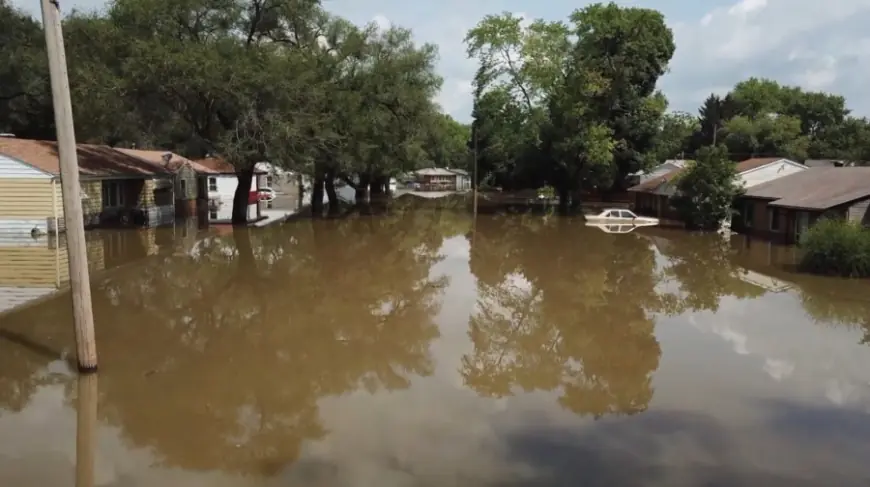Cahokia Heights agrees to $30 million sewer system overhaul
Cahokia Heights has agreed to $30 million in fixes in an ongoing legal dispute over its sewage system.

CAHOKIA HEIGHTS, Ill. - Cahokia Heights has agreed to $30 million in fixes in an ongoing legal dispute over its sewage system.
A consent decree filed between the U.S. Department of Justice, the Environmental Protection Agency, and Cahokia Heights aims to fix the city's outdated sewage system.
U.S. and Illinois EPA officials say the system has posed public health risks and caused environmental damage.
“Cahokia Heights failed to maintain its aging sewer system, resulting in hundreds of illegal sanitary sewer overflow discharges that created public health risks and contaminated homes and the environment,” said Assistant Administrator David M. Uhlmann for EPA’s Office of Enforcement and Compliance Assurance, via an EPA news release. “This settlement will put Cahokia Heights on a path to significantly reduce overflows and ensure effective operation of the sewer system.”
Under the consent decree, the city plans to invest $30 million to repair and upgrade its sewer system, improve monitoring and maintenance, and reduce overflows. More than 80 capital improvement projects are planned under the decree, including a $13.5 million interceptor project aimed at reducing overflows and backups in several neighborhoods.
Despite these plans, some residents, including Yvette Lyles, are not satisfied.
"No one should be living like this. Not here in the Midwest, nor anywhere else in the United States," she said.
She's lived in her Cahokia Heights home for 31 years. For decades, Lyles says people’s homes and streets flood with sewage when it rains. People have routinely made repairs, thrown out furniture, and managed health complications.
"I need you all to understand that our health is falling apart too,” Lyles said. “It's not just our land, our homes, and our property, which is valuable to us, but our bodies.”
The DOJ and EPA took Cahokia Heights to court, saying records show on 300 days since November 2019, the city discharged sewage in waters from a pipe on North 82nd Street and associated ditch.
A consent decree filed this week looks to settle the legal action. In it, Cahokia Heights agreed to invest about $30 million in fixes and pay a $30,000 civil penalty.
Mayor Curtis McCall did not speak with FOX 2 when we went to city hall, but he sent a statement saying, “The Consent Decree builds upon the good work that was started under the IEPA grant and represents the City’s continued commitment to invest in our infrastructure and improve the lives of residents throughout Cahokia Heights for many years to come.”
He said this investment is on top of $10 million granted from the Illinois EPA for sewage repairs. The decree outlines 80 near-term projects. But the city has up to five years to comply with certain aspects of the decree.
"The consent decree is not holistic. It does not provide them with the relief that is nearly needed,” attorney Nicole Nelson said. “Our hope is that this is just the beginning and a step in the right direction and that the community is allowed to continue to advocate.”
Mayor McCall did not say how the work would be funded.
The consent decree says, "It is the city's responsibility to determine how best to fund the work." It goes on to say that the city can request to modify the schedule if funding is an issue.
But Lyles and her neighbors say they need relief now, and they need to be made whole for all of the damage this issue has caused.
"What about the impact that'll make a big difference in how we're living? You don't want to go get another mortgage this late in life. I don't. What do I look like, buying another home?" she said.
Under the consent decree, the city will also be required to keep the community informed about its progress by creating emergency plans, developing digital system maps, and monitoring overflow points in real time.
While the city has formally agreed to the consent decree, it is now subject to a 60-day comment period as it moves toward final approval in the U.S. District Court for the Southern District of Illinois.
What's Your Reaction?









































































































